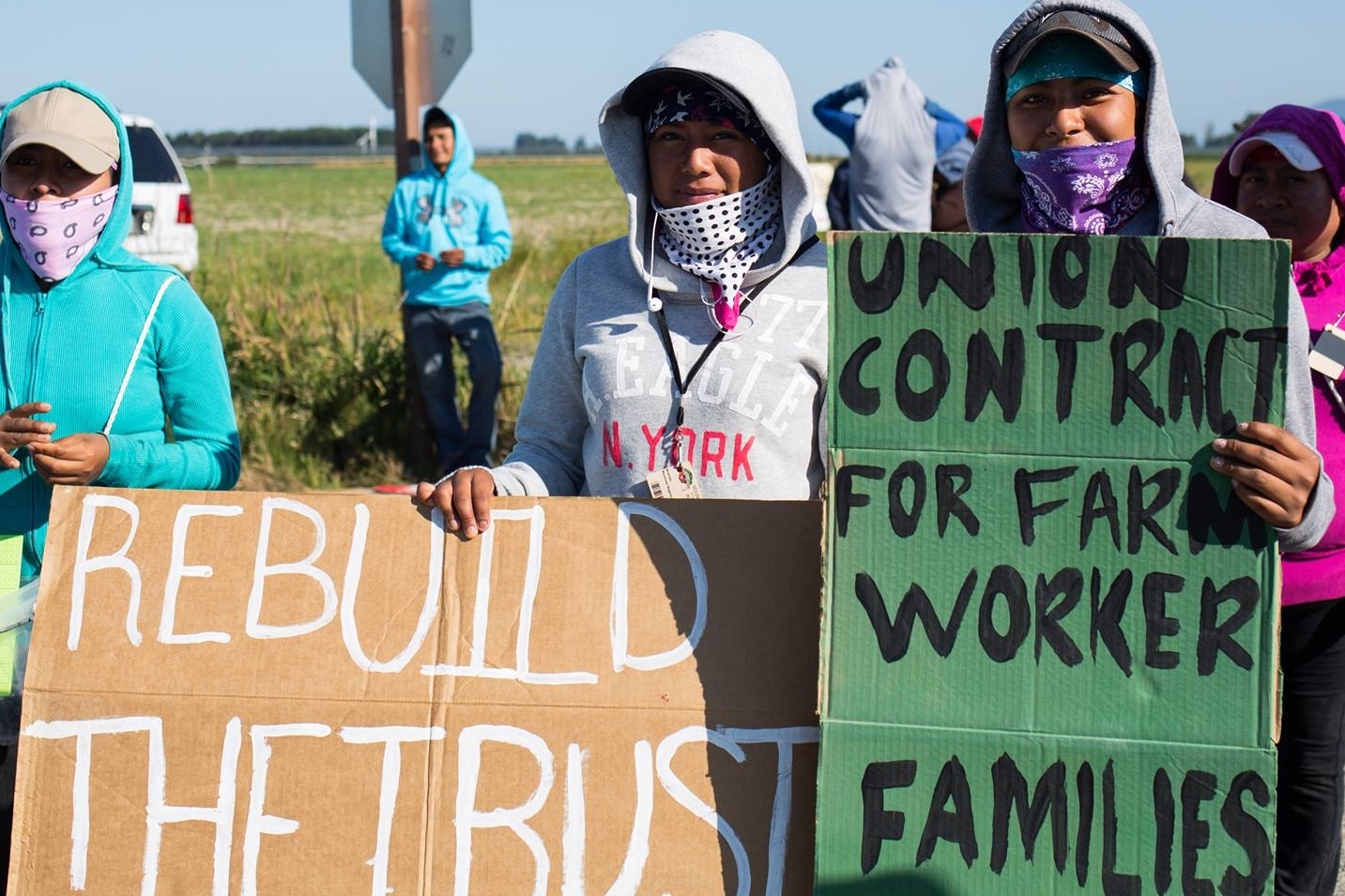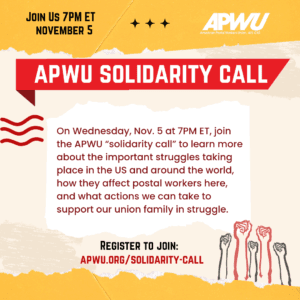September 1, 2015
Big Wins for Migrant Workers, Thanks to Public Support

at a blueberry picker strike at Sakuma Brothers Farms in late June.
Photo courtesy of James Leder
(This article first appeared in the September/October 2015 issue of The American Postal Worker magazine)
Migrant workers across the country have scored big wins, thanks to support from the public.
After three months of strikes and protests, 30,000 berry pickers in Baja California, Mexico, negotiated with the Mexican government and won raises of up to $4 a day, access to government benefits, and overtime pay. The farm workers, mainly from Oaxaca and Guerrero, teamed up with U.S. activist groups, including the Farm Labor Organizing Committee, to whip up worldwide support.
One effective tactic was an international boycott of Driscoll’s, whose strawberries, blackberries and blueberries flood U.S. supermarkets.
But they aren’t the only ones pitted against Driscoll’s.
Familias Unidas por la Justicia (Families United for Justice) is stepping up a boycott of the berry company, which began in 2013.
Most of the FUJ workers are also originally from Oaxaca or Guerrero, but live in California as guest workers through a federal visa program. They have been migrating to work at Sakuma Brothers Farms, a Driscoll supplier, in Washington state every summer for a decade, but are still paid based on the amount of fruit they pick, rather than an hourly wage.
The workers are calling for a minimum wage of $15 per hour and health benefits. So far, Sakuma has refused to negotiate. Workers hold frequent strikes and demonstrations with allies from labor, community and faith groups.
Familias Unidas regularly sends solidarity messages to the Baja berry workers, and has been highlighting the connections between their common fight against Driscoll’s.
Victory in Vermont
In Vermont, dairy workers who are members of Migrant Justice launched a campaign to address low wages and labor violations.
A national day of action was planned for June 20, to put pressure on the dairy suppliers for Ben and Jerry’s, to sign onto the Milk with Dignity program, which calls for a worker-authored code of conduct, a worker education program and third-party monitoring.
Less than 24 hours before the day of action was scheduled to begin, Ben and Jerry’s signed a letter of intent agreeing to adopt the Milk with Dignity program in its Northeast dairy supply chain. The program requires suppliers to pay a premium to farmworkers and farmers.
Farmworkers and their allies went ahead with their June 20 day of action outside Ben and Jerry’s stores in 17 cities, but with a celebratory tone.
Reporters Unionize
On June 3, workers at New York-based Gawker Media became the first employees of a major digital media company to organize a union.
Journalists at San Francisco-based Salon followed suit, voting to unionize on July 2.
On July 29, staff at the Guardian US voted unanimously to unionize. They will be represented by the Newspaper Guild.
Gawker employees will be represented by the Writers Guild of America, East. As this issue went to press, Salon workers did not have representation.
Reporters for popular news sites such as Gawker, Jezebel and Deadspin voted in a secret ballot election 80-27 to bargain collectively for a contract.



